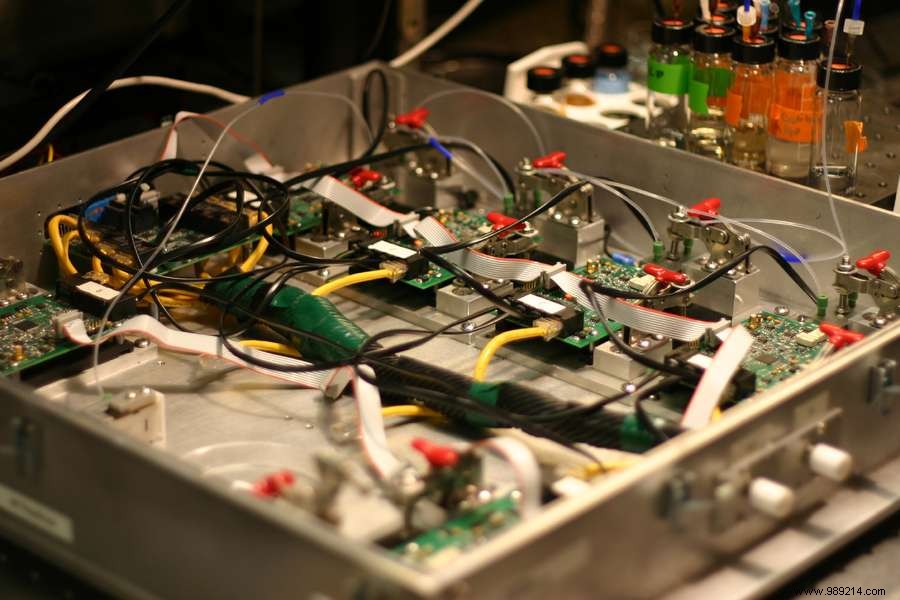US researchers recently claimed to have developed a system that can rival the performance of man's best friend truffle. Their disease detector succeeds in interpreting odors with an efficiency similar to that of dogs.
In July 2020, German researchers said they had trained tracker dogs for the detection of the SARS-CoV-2 coronavirus using more than a thousand samples of saliva. However, the success rate was 94% . A French project also had a similar success rate. In their study published in the journal Plos One, researchers at MIT (USA) claimed to have developed a system capable of competing with olfactory abilities dog truffles. But what is the point of automating the abilities of dogs with an automatic disease detector? In reality, training these animals takes some time and the numbers are ultimately quite limited.
The MIT team explains that their system is sensitive to chemical and microbial content of an air sample. Integrating mammalian olfactory receptors acting as sensors after stabilization, this detector processes data in real time. Algorithms trained via machine learning are then responsible for detecting the first signs of a disease.

For scientists, the challenge is daunting:interpreting odors like dogs. They thus carried out tests with sniffer dogs and their system. They then obtained similar success rates over 70% with urine samples from people with prostate cancer. Researchers say disease detector is 200 times more sensitive than dog's nose, but also “100% dumber” concerningthe interpretation of the results.
In order to improve the interpretation of the results, the project leaders rely on machine learning. However, the hope is immense:what if the system itself could find the patternsthat the dogs have already identified s unlike humans? Remember, however, that when we use our best means to analyze samples from patients with different cancers, we find nothing comparable to what dogs detect. Dogs therefore perceive things that still elude us. They don't know anything about chemistry and are just exploiting a sensation.
There is still a very long way to go before MIT's disease detector becomes fully effective. Another point could slow down searches . Artificial intelligence could sometimes receive samples deemed negative by laboratories that would not have detected the presence of cancer at an early stage. The system could then take this for granted and not scale in performance.